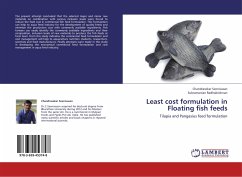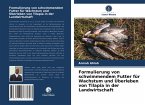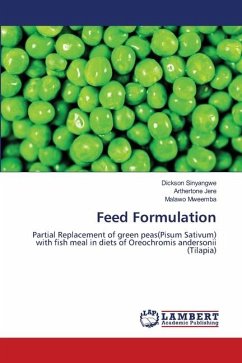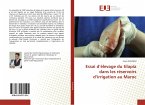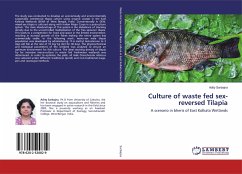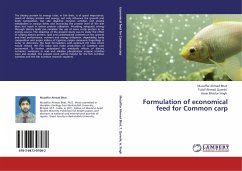Five feeds, designated A, B, C, D and E, were used in the culture of Oreochromis niloticus (L) to evaluate and compare their effects on growth performance, feed conversion ratio (FCR), fish production, survival rate and profitability in commercial tilapia farming in Ghana. Feed A contained only wheat bran and was used as the control. Feed B was formulated from wheat bran, fishmeal, maize, palm oil and premix vitamins. Feed C contained wheat bran, soybean cake, maize, palm oil and premix vitamins. Feed D was a commercial fish feed from Ghana Agro-Food Processing Company (GAFCO). Feed E was formulated from wheat bran, fishmeal, soybean cake, maize, palm oil and premix vitamins. The study was conducted in fifteen 6-m3 hapas mounted in a 2,000 m2 earthen pond. Each hapa was stocked with thirty tilapia fingerlings of an average weight of 40 g and were fed on the various experimental feeds (in triplicates) for 168 days. It was concluded that Feed E induced superior growth performance, was converted more efficiently into fish flesh, induced high production, exhibited good floating ability and was therefore, more economical for commercial tilapia farming in Ghana.

